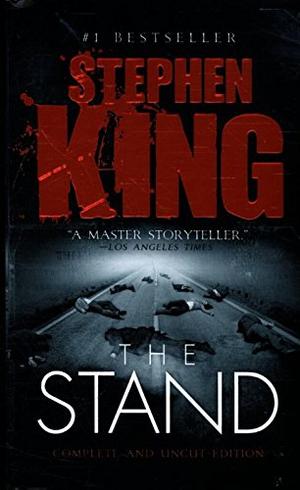Imagine for a moment that a pandemic sweeps across the globe, wiping out the majority of the human race. What remains is a stark dichotomy of good versus evil playing out on a massive stage. Sounds like a dystopian nightmare, right? Yet, this is precisely the formidable premise of Stephen King’s magnum opus, “The Stand.” A tale that delves into not just survival, but the very essence of humanity itself, it poses a playful question: in a world stripped bare of societal norms, who truly governs our moral compass?
The complex narrative of “The Stand” begins with the accidental release of a lethal superflu, dubbed “Captain Trips.” This contagion swiftly annihilates 99.4% of the global population, depicting a hauntingly realistic portrayal of vulnerability in human existence. What is truly fascinating is not merely the chaos that ensues, but rather how the remaining characters are forced to confront their deepest fears, desires, and ethical quandaries. Here lies a challenge: can hope be cultivated amidst despair, or will the primal instinct for survival extinguish the remnants of civility?
King masterfully crafts his cast of characters, each representing a spectrum of humanity. From the benevolent Mother Abagail, who embodies light and hope, to the sinister Randall Flagg, a personification of darkness and chaos—King deftly employs these archetypes to explore themes of morality and duality. The compelling nature of these characters raises an intriguing question: can we ever escape our inherent nature, or do we ultimately succumb to our baser instincts?
A careful examination of the narrative reveals that the fate of humanity hangs precariously on the choices made by these characters. The survivors are drawn to Boulder, Colorado, forming a community reminiscent of a fresh start, intuitively anchored by a shared vision of peace and cooperation. Simultaneously, Flagg amasses a following in Las Vegas, perpetuating a regime built on fear and dominion. This juxtaposition ignites a thrilling tension that begs the inquiry: what motivates individuals to align with altruism or tyranny?
The thematic exploration of leadership stands at the forefront of “The Stand.” King scrutinizes the effectiveness of both democratic ideals and authoritarian governance through the lens of his characters’ actions and decisions. As Mother Abagail rallies her followers towards constructive civility, Flagg’s persona propagates submission and control. This narrative dynamic allows for a rich exploration of political philosophy. The challenge that arises is staggering: can a benevolent leader indeed succeed where darkness and manipulation breed fear?
Moreover, King’s portrayal of the supernatural acts as both a symbolic and literal catalyst for examining humanity. The presence of “The Dark Man” suggests that evil is always lurking in the shadows, waiting for the opportune moment to exploit human frailty. This duality not only adds complexity to the story but also poses a psychological inquiry: are we inherently good, with evil as an external force, or is the essence of evil woven into the fabric of our being?
Throughout the narrative, the length and depth of the story certainly stand out. A sprawling epic of over a thousand pages, “The Stand” constructs a world so vividly illustrated that readers will find themselves swept up in its complexity. Each subplot, whether it be the burgeoning friendship between Stu Redman and Frannie Goldsmith or the disillusionment of the antagonists, contributes to the grand tapestry of human experience. Every thread is necessary, operating cohesively to reflect the multitude of human behaviors in the absence of societal structure.
Symbolism plays a crucial role in amplifying the novel’s resonance. The contrasting settings of Boulder and Las Vegas serve as microcosms of the overarching struggle between hope and despair. The bright, sunlit streets of the community in Boulder stand in stark contrast to the dark, oppressive atmosphere of Flagg’s Las Vegas. This juxtaposition echoes the eternal challenge of maintaining optimism amidst tribulation—a poignant reminder that hope is often a flickering flame, not an all-consuming fire.
The narrative invites the reader to engage in self-reflection, examining their own beliefs and values in light of the characters’ journeys. Who among us would flourish in times of chaos? Would one lean toward collaborative resilience or succumb to fear-driven selfishness? King’s exploration of psychological depths elucidates these dilemmas, offering a provocative mirror to our own potential when faced with rampant uncertainty.
In conclusion, “The Stand” is much more than a horror narrative; it is an intricate exploration of the human condition. It poses fundamental questions about morality, leadership, and our innate tendencies as individuals. Through his vivid storytelling and unforgettable characters, Stephen King provides not just entertainment but an invitation to reflect on our roles within the fragile ecosystem that is humanity. As readers navigate through the ruins of post-apocalyptic society, they are left to ponder the ultimate challenge: when stripped of all we know, what will we choose to stand for?
